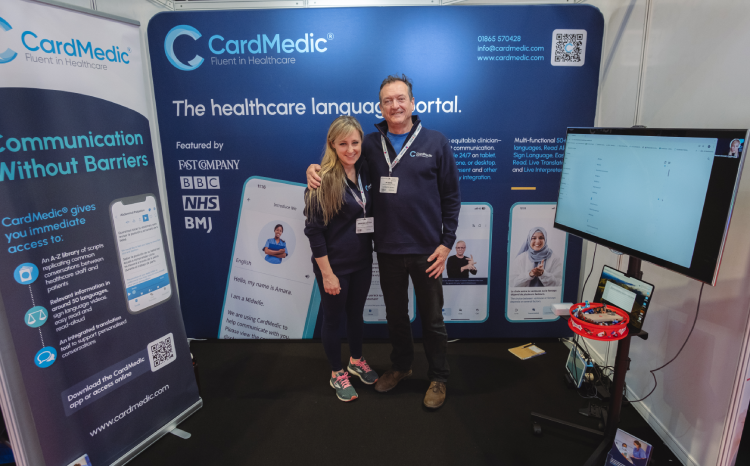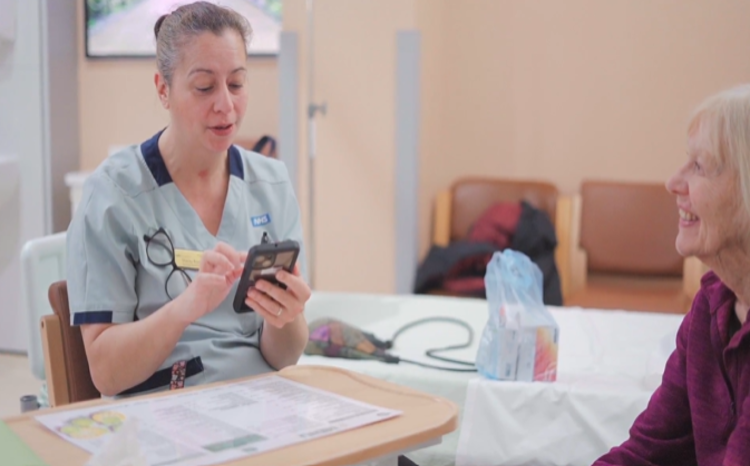Digital Health’s monthly roundup of contracts and go lives
- 17 February 2023

Our latest roundup of contracts and go lives brings you news of Wellola’s patient communication platform going live in Birmingham and The Christie NHS Foundation Trust becoming the first specialist cancer trust to deploy CardMedic.
Radar Healthcare partners with Circle Health Group
In January we saw the news that Radar Healthcare is set to supply the UK’s largest private hospital group with risk management and compliance software to help improve patient outcomes.
Currently, Circle Health Group’s 54 hospitals use multiple risk management and compliance systems. Radar Healthcare will supply one integrated platform to improve efficiency and unlock vital safety data that will help to improve overall performance.
Integration of the Radar Healthcare platform across Circle Health Group started last month. Its deployment will allow the private hospital company to evolve its current processes. In addition, it will support compliance to the Learn from Patient Safety Events (LFPSE) service.
Nottingham University Hospitals rolls out Nervecentre EPMA
In the final week of January, Nottingham University Hospitals NHS Trust announced it has advanced its Digitisation Programme with the rollout of the Nervecentre EPMA, which will improve patient safety through the reduction of medication errors.
The e-prescribing and medicines administration (EPMA) from Nervecentre provides a safe and efficient closed-loop solution for clinicians. It allows GS1 barcode scanning of patient wristbands and medicines from a mobile device used at the patient’s bedside.
As well as limiting the potential for medication errors, the system is also enabling clinical decision support and delivering time-savings and workflow efficiencies.
According to Nottingham University Hospitals, its use within the cardiology department has resulted in the time taken for discharge summaries to drop to under 10 minutes, from the previous 40+ minutes.
Wellola’s patient communication platform to go live in Birmingham
Birmingham Community Healthcare NHS Foundation Trust (BCHC) is to go-live with Wellola’s patient communication platform, Portasana, to help the trust meet national targets for reducing waiting list backlogs.
The new platform will digitise up to two million patient communications every year. The hope is that it will help to reduce the number of missed appointments or Did Not Attends (DNAs) in the Birmingham region, whilst freeing up workplace capacity by automating patient communications.
Patients will be able to access Wellola’s Portasana platform either from BCHC’s website or via an app. They will be able to view their appointments, medical records and healthcare letters plus access educational resources provided by their clinician.
The second phase of the rollout – set to happen early this year – will also give patients the functionality to cancel and reschedule appointments, fill in online assessments and access virtual care pathways.
Warrington and Halton integrates EPR with GP connect
The first week of February saw Warrington and Halton Teaching Hospitals NHS Foundation Trust going live with the integration of its electronic patient record (EPR) with NHS Digital’s GP Connect products.
As a result, clinicians using Dedalus’ EPR can now view key clinical information from GP systems in the hospital’s EPR at the point of care.
Healthcare professionals at the trust can securely access GP medication and allergy records. They can also view and import a patient’s current medication status. This additional information supports ongoing treatment decisions, improving both care and patient outcomes.
The Christie becomes first specialist cancer trust to deploy CardMedic
The early days of this month also saw The Christie NHS Foundation Trust deploying CardMedic to help reduce health inequalities for patients, making it the first specialist cancer trust to use the healthcare communications app.
The CardMedic app will help The Christie to bridge communication gaps, such as language barriers or cognitive impairments, between clinicians and patients to reduce health inequalities.
The trust is also working with CardMedic to co-create new content for its flashcard library, developing specific oncology scripts to help cancer patients communicate in spite of any barriers they may face.
The solution has been deployed across the whole trust and is now used by 100 nurses, doctors and pharmacists at four sites: Withington, Salford, Oldham and Macclesfield.
Frimley Health launches getUBetter app for musculoskeletal patients
Frimley Health NHS Foundation Trust has launched getUBetter, a new app designed to help patients with musculoskeletal (MSK) injuries and conditions manage their symptoms at home.
Created by clinicians in Emergency Care and checked by multiple GPs, physiotherapists and orthopaedic consultants, the app delivers evidence-based advice to patients so they have the right information to help them recover.
getUBetter can be used by anyone over 18 years and can offer help on all common muscle, bone and joint problems, including back, back and leg, neck, shoulder, hip, knee, ankle pain and soft tissue injury.
The app can be used by anyone who requires self-management support for a new, recurrent or long-term MSK condition, making it suitable for around 80% of Frimley Health’s MSK patients.




